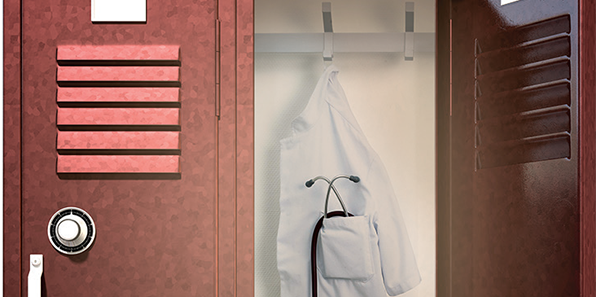
‘Revisiting Nitroglycerin in MI with Right-Side Ventricular Involvement’ (March 2024)
Another question to ask is why do we give nitrates at all to patients with acute myocardial infarction. There is no benefit to morbidity or mortality.
Explore This Issue
ACEP Now: Vol 43 – No 04 – April 2024—Andrew Schare, MD, FACEP
Nitroglycerin will cause venodilation in every patient. If they are dependent on right ventricular filling for contraction as during myocardial ischemia/infarction, then you will expect this effect to be pronounced. It’s not that you can’t give NTG for the anti-anginal effect of potentially pain relief (that‘s all the benefit you will ever get from NTG unless there is actual coronary artery spasm without complete coronary occlusion/thrombosis) but you need to be ready to intervene by stopping the NTG (it should be IV and not SL or topical since you need the effect to go away quickly) and give an IV fluid bolus. If you give a SL NTG and do not have IV access yet to give an IVF bolus, you will never forget this mistake even if the patient hopefully doesn’t arrest.
—Joseph Shiber, MD, FACEP
‘Survival Tactics for Emergency Department Boarding’ (March 2024)
Thank you, Shari. Your contribution to addressing this and other serious health care issues over the years has been laudable.
The failure of inpatient bed capacity to keep up with population is stark, albeit same day outpatient surgery with new techniques have changed a two-day hospital stay into a long afternoon in post-op. And changes in health care funding policy have forced hospitals and others to dramatically change business practices.
In Arizona, in the late 1990s to late 2000s the Arizona ACEP Chapter had a huge impact on hospital crowding, to which you alluded. But, now, here we are again and what appears to be worse and more wide-spread. So once again, the Arizona Chapter Board is taking action to draw attention to and impact this serious issue.
This time, we have chosen to employ data (not readily available in the past) to incentivize hospitals to take appropriate action & join with the emergency medicine community to lobby for policy changes. Anyone interested may contact me for a summary.
Thanks again for summarizing this timely topic.
—Todd B. Taylor, MD, FACEP
‘Case Report: Acute Urinary Retention and Fever in a Man’ (January 2024)
Acute urinary retention (AUR) is an important clinical issue especially with an aging population. But, fever is also common in these patients, since many of them have urinary tract infections (UTIs). Prostatitis is sometimes the cause, but far less often than the article implies. The article neglects the most common cause: benign prostatic hypertrophy (BPH). Prostatitis is far less common than BPH, and most men with AUR and evidence of UTIs do not need four to six weeks of antibiotics (in spite of some urologists’ recommendations).1 In reality, BPH is the cause of AUR more than 50 percent of the time.
—W. Anthony Gerard, MD, FAAFP, FACEP
Reference
- Coker TJ, Dierfeldt DM. Acute bacterial prostatitis: diagnosis and management. Am Fam Physician. 2016;93(2):114-20.
Pages: 1 2 | Multi-Page





No Responses to “Readers Respond: Nitroglycerin, Boarding Tactics, and Acute Urinary Retention”